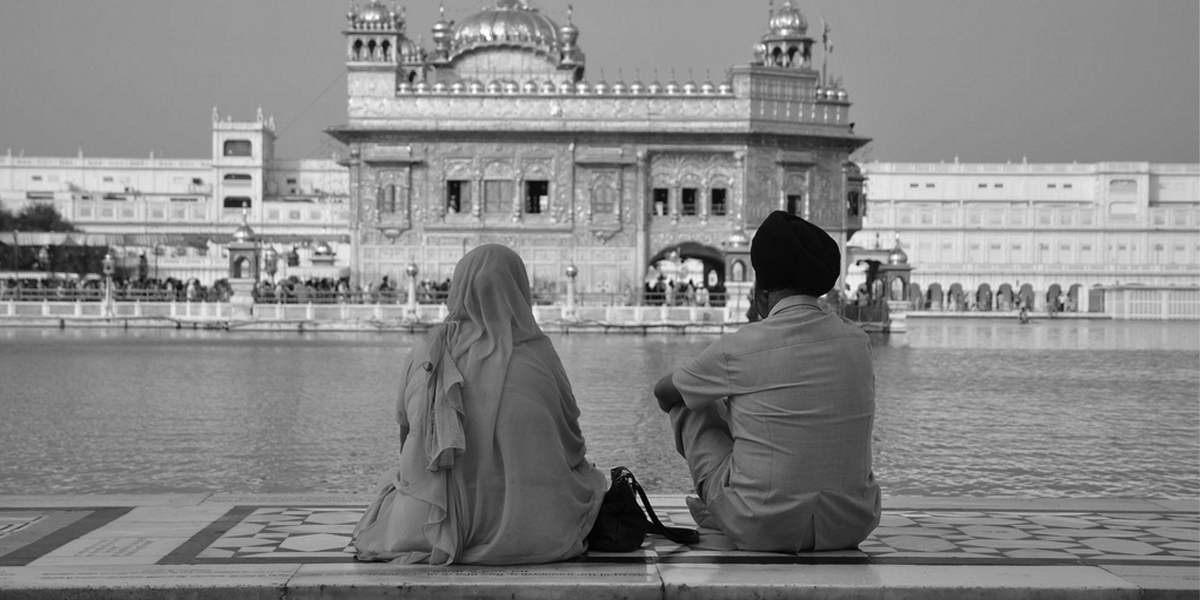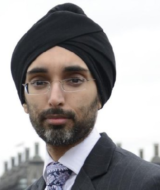The Golden Temple raid: British Sikhs in shock
Rarely does the release of government documents under the 30-year rule cause any community in the UK to question its own identity and result in front-page headlines internationally. But the revelations of two letters dated February 1984 from the Foreign and Commonwealth...
Rarely does the release of government documents under the 30-year rule cause any community in the UK to question its own identity and result in front-page headlines internationally. But the revelations of two letters dated February 1984 from the Foreign and Commonwealth Office, one of which refers to an SAS officer travelling to India and drawing “a plan to remove Sikh extremists from the Golden Temple in Amritsar”, the holiest shrine of the Sikh faith, has done precisely that.
In June 1984, the Golden Temple complex was stormed by the Indian Army as part of Operation Blue Star to flush out a group of armed Sikh separatists who had fortified the shrine, and the entire State of Punjab was isolated from the rest of India for a period of time under a complete media blackout and curfew. The Indian prime minister Indira Gandhi was subsequently assassinated by her Sikh bodyguards on 31st October 1984, and the days immediately following her death saw the killings of thousands of innocent Sikhs around India by mobs in the worst communal violence since Indian independence almost 40 years earlier.
The potential involvement of the British government in Operation Blue Star has shocked many British Sikhs.
Virendra Sharma, MP for Ealing Southall which has one of the largest Sikh populations in the UK, has been quoted within Indian media as saying that “people are angry because it was not publicly known that Margaret Thatcher was helping the Indian government.”
Several Sikh organisations have spoken of the sense of betrayal that they have felt, especially in light of this year’s one hundredth anniversary of the start of the first world war when tens of thousands of Sikh troops loyally fought and died for king and empire. Social media sites such as Facebook and Twitter have seen British Sikhs venting their shock and resentment towards the British government for what is being described by one leading Sikh organisation as “British collusion with Indian authorities in the Golden Temple genocide 1984”.
Given the depth of the emotions of many British Sikhs related to these revelations, the impact upon the British Sikh identity could be far reaching. According to the British Sikh Report 2013 published last June, 95 per cent of Sikhs in the UK were proud to some extent to be British. Dr Jasjit Singh of Leeds University has commented upon this, saying: “It will be interesting to monitor if this feeling of Britishness has been affected in any way by these revelations – certainly the conversations taking place in the immediate aftermath of the disclosure of these letters highlighted feelings of betrayal, that the British government of the time could knowingly be a part of an operation which they were fully aware would hurt the sentiments of British Sikhs.”
British Sikhs have noted that the decision was made by Margaret Thatcher’s Government, with images of Thatcher and Gandhi together being circulated on social media with several comments about the two comparable to the emotive comments made by some sections of British society following Thatcher’s death last year. The impact upon the relationship between the Conservative Party and the British Sikh electorate cannot be underestimated, with Will Heaven from The Telegraph questioning “Will British Sikhs ever vote Tory again?”
It has also been noted that Tom Watson MP and Pat McFadden MP, both Labour politicians with significant Sikh populations within their constituencies, have raised questions at PMQs last week regarding these revelations. Tom Watson has also been credited with raising the profile of the revelations to a national and international level.
The investigation into this matter goes far beyond party politics and it would be morally reprehensible for any political party to make mileage of this, but there will inevitably be political, as well as social, repercussions. Will Sikhs be far less likely to vote for the Conservatives in 2015 in light of events of 30 years ago? Will there be an effect on how integrated Sikhs feel in British society? Will the inquiry by the cabinet secretary Sir Jeremy Heywood be enough to assuage the concerns of Sikhs in the UK and elsewhere? It is still far to early to tell, but we should have some sort of idea once the findings of the inquiry have been made public in the next few months.

